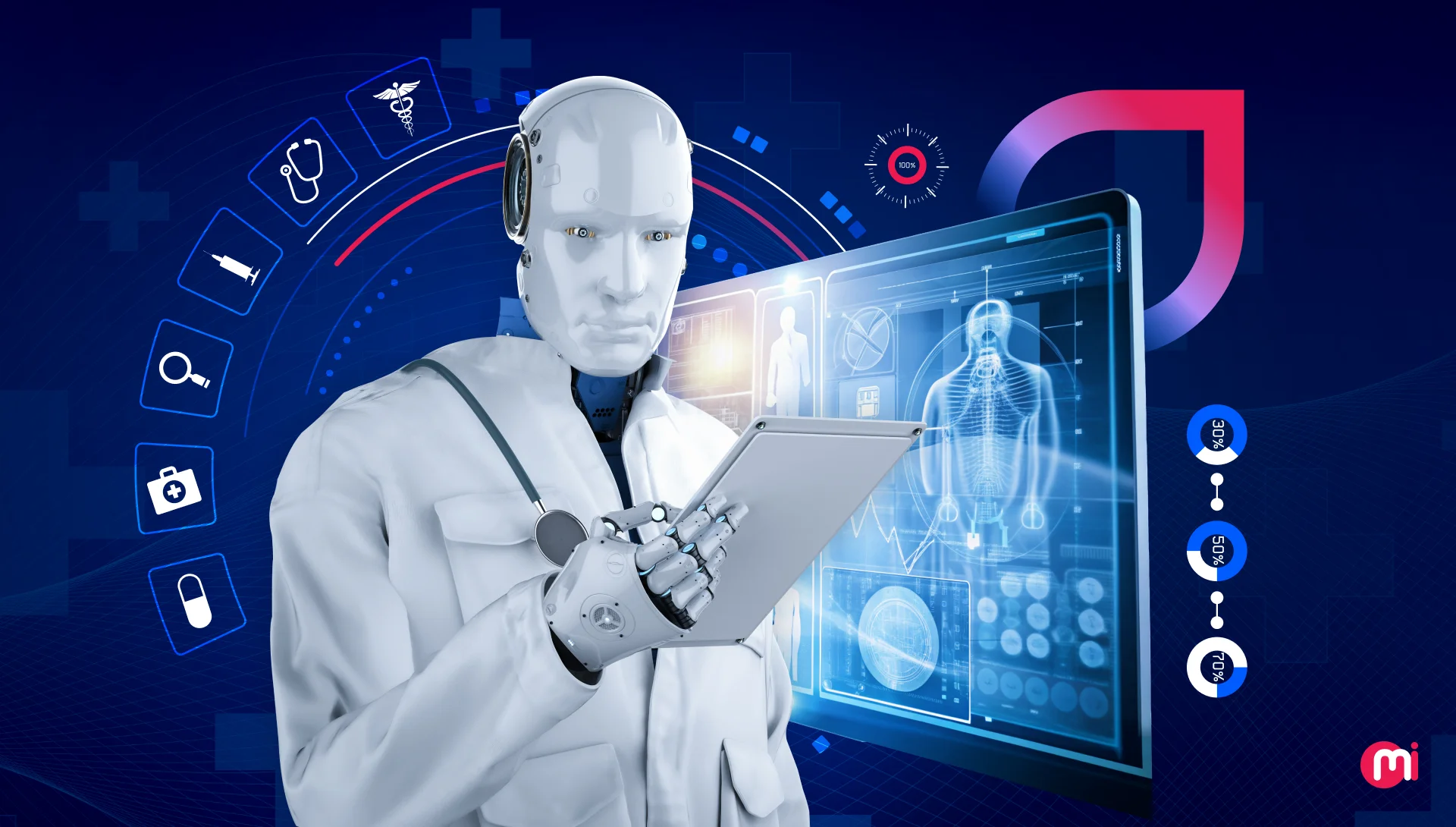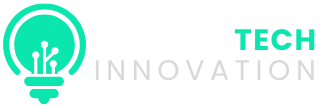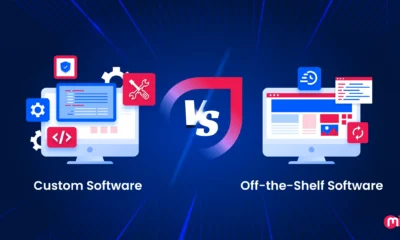Tech News
Unlocking the Potential: Benefits, Use Cases, and Examples

Healthcare systems are facing unprecedented pressure, with rising costs, clinician burnout, and fragmented patient data posing challenges to efficiency and care quality.
AI in healthcare, particularly AI Agents, is gaining traction as a solution. AI agent technology is helping healthcare institutions transform their operations and provide better patient care.
With the potential to reach a market size of $4.96 billion by 2030 at a CAGR of 45.56% from 2025 to 2030, AI Agents offer significant benefits to the healthcare industry.
So, how can you leverage AI Agents in Healthcare software trends in your operations? This blog covers everything you need to know about AI Agents in healthcare, including types, benefits, use cases, and real-world examples.
Let’s dive in!
Key Takeaways
- AI agents are autonomous software that uses AI to analyze, make decisions, and learn to achieve specific goals on behalf of users.
- AI agents in healthcare interpret medical information, make decisions, and take actions to improve patient outcomes, support providers, and optimize operations.
- By utilizing AI agents in healthcare, organizations can achieve faster, more accurate diagnoses, personalized treatment plans, enhanced patient engagement, and improved outcomes.
- Healthcare institutions can utilize AI agents to support diagnosis, personalized treatment plans, drug discovery, workflow automation, and fraud detection.
- Sully AI, Innovaccer, and Notable are the top real-world examples of AI agents in healthcare.
What Are AI Agents in Healthcare?
AI agents are software systems that can autonomously perform tasks, make decisions, and interact with data or users, often without continuous human intervention.
AI agents in healthcare are intelligent systems that interpret medical information, make decisions, and take actions to improve targeted healthcare processes, such as improving patient outcomes, supporting providers, and optimizing administrative operations.
Also Read: How Autonomous AI Agents Are Shaping Our Future
Types of AI Agents In Healthcare
The main types of AI agents in healthcare include rule-based agents, ML-based pattern recognition agents, contextual AI agents, conversational agents, analytical agents, and multi-agent systems.
Let’s explore these different types of AI agents in healthcare:

1. Rule-Based Agents
These agents are designed to follow predefined rules to perform specific tasks. Healthcare organizations can use rule-based agents to handle simple, repetitive tasks like alerts, reminders, or answering FAQs.
2. Pattern Recognition Agents (ML-Based)
These are ML-powered agents that can identify trends, correlations, and anomalies in large datasets. Healthcare organizations can use pattern recognition agents to detect early signs of disease, monitor patient vitals, or flag unusual billing patterns.
3. Contextual AI Agents
These AI agents are capable of making decisions based on a broader understanding of patient data and operational context. Healthcare institutes can leverage contextual AI agents to suggest treatment plans or workflow adjustments, considering multiple factors simultaneously.
4. Conversational Agents
These AI agents are as simple as natural language interfaces, like chatbots or voice assistants, that patients and staff can interact with. But the difference is, they provide an experience as if they are communicating with a professional to resolve their queries. Healthcare institutes can integrate conversational agents to handle appointment scheduling, patient queries, follow-ups, and basic triage.
5. Analytical Agents
Unlike simple predictive analytics dashboards, analytical agents process and analyze complex datasets to generate insights and predictions. When we say analytical agents, healthcare institutes can leverage them to support clinical decisions, population health analysis, and resource planning.
6. Multi-Agent Systems
Call it a multi-agent system or an agentic AI system; it enables more than two AI agents to collaborate to solve complex problems to achieve common goals. Healthcare organizations can leverage multi-agent systems to combine imaging analysis, patient data, and workflow automation to deliver comprehensive care solutions.
Read about AI agents vs Agentic AI for better clarity
Why Healthcare Organizations Need AI Agents
Many healthcare organizations adopt AI agents to address operational challenges, boost productivity, enhance clinical decision-making accuracy, deliver proactive patient experiences, and unlock siloed data value.
To Combat Operational Challenges
Hospital staff are often burdened with administrative tasks like manual data entry, repetitive workflows, and approvals. AI agents can automate routine tasks like claims processing, scheduling, and reporting, freeing up staff for patient care and reducing operational costs.
To Empower Doctors with Enhanced Diagnosis
AI agents assist doctors in analyzing patient histories, lab data, and imaging results to provide critical insights faster. This reduces cognitive load, enhances decision-making, and improves diagnostic accuracy.
To Enhance Patient Experience
Patient expectations for convenience in healthcare apps are rising. AI agents can provide personalized reminders, chat-based symptom checkers, and predictive follow-ups, improving patient engagement and care quality.
Healthcare providers benefit from improved adherence and clinical forecasting.
To Unlock Siloed Data Value
Healthcare data is often stored in different systems, hindering decision-making. AI agents unify and interpret data in real-time, creating a single source of truth for population health insights and care initiatives.
To Navigate Ethical and Regulatory Challenges
The healthcare industry faces strict regulations, and AI agents can help navigate compliance with regulations like HIPAA, HITECH, and ensure data protection. They also enforce explainable AI, ensuring transparency and trust with clinicians and patients.
Also Read: AI Agents for Business: Definition, Benefits, and More
Benefits of AI Agents in Healthcare
Healthcare providers using AI agents benefit from advanced diagnostic support, automated workflows, personalized patient experiences, regulatory compliance, cost reduction, and more.
Advanced Diagnostic Support
AI agents connected with radiology, lab, and EHR systems can analyze comprehensive patient data and medical images with high accuracy. This leads to faster and more accurate diagnoses, especially in complex cases.
Automated Administrative Workflows
AI agents automate tasks like patient intake, appointment scheduling, referrals, and billing, reducing administrative costs and processing time.
Personalized Patient Experiences
AI agents use patient data to recommend tailored treatment plans and predict responses to therapies, improving patient outcomes and engagement.
Continuous Monitoring
AI agents integrated with medical devices monitor vital signs and alert care teams to potential health risks, enabling early intervention and improving chronic disease management.
Regulatory Alignment
AI agents ensure compliance with regulations like HIPAA and GDPR, monitor data access patterns, and enforce regulatory guidelines, maintaining patient data security and workflow compliance.
Faster Revenue Cycle
AI agents automate claim processing, verification, and billing, reducing errors and accelerating revenue collection.
Cost Reduction
By automating processes and improving resource utilization, AI agents reduce administrative and operational costs, helping healthcare organizations improve care quality and financial sustainability.
Also Read: AI Agents for Enterprises: Practical Use Cases, Examples, and Implementation Strategies
Top Use Cases of AI Agents in Healthcare
AI agents empower diagnostic support, clinical documentation, personalized treatment plans, remote patient monitoring, revenue cycle management, and more in healthcare processes.
Let’s explore the top AI agents in healthcare applications for promising outcomes:
Diagnostic Support
AI agents analyze patient data to detect patterns, surface likely diagnoses, and reduce diagnostic errors, improving diagnostic accuracy and clinical confidence.
Clinical Documentation With Ambient Scribe
AI agents transcribe patient-clinician conversations, auto-fill EHRs, and reduce physician documentation time, improving attention to patient care and physician satisfaction.
Personalized Treatment Plans
AI agents analyze patient characteristics and recommend tailored, evidence-based therapies, improving treatment efficacy and reducing adverse events.
Remote Patient Monitoring
AI agents track health data, predict deterioration, and prevent readmissions by monitoring patient health between clinical visits, enabling proactive care and chronic disease management.
Revenue Cycle Management & Claim Management
AI agents automate billing workflows, verify payers’ rules, and minimize claim denials, improving revenue collection and reducing administrative costs.
Medical Coding & Billing Support
AI agents suggest accurate medical codes and improve documentation for billing and reimbursement optimization, reducing coding errors and improving revenue capture.
Fraud Detection & Compliance Monitoring
AI agents analyze billing patterns, clinical documentation, and provider behavior to detect fraud, waste, abuse, and compliance violations early, protecting healthcare organizations from financial losses and legal risks.
Virtual Health Assistants & Patient Engagement
AI agents interact with patients through chatbots, voice assistants, and SMS, providing personalized support for appointment scheduling, reminders, symptom assessments, and care guidance, improving patient engagement and satisfaction.
Chronic Disease Management
AI agents monitor patient health data, coordinate care across providers, and provide continuous support for chronic disease management, reducing complications and improving patient outcomes.
Operational Optimization Applications
AI agents forecast demand, optimize resources, and streamline hospital workflows by processing data streams, improving capacity utilization, reducing costs, and enhancing operational efficiency.
| Category | AI Agent Use Case |
| Diagnostic Support | Analyzes patient data to detect patterns, surface likely diagnoses, and reduce diagnostic errors. |
| Clinical Documentation | Transcribes consultations, auto-fills EHRs, and cuts physician documentation time. |
| Personalized Treatment Plans | Uses genomics and patient data to recommend tailored, evidence-based therapies. |
| Remote Patient Monitoring | Tracks real-time health data to predict deterioration and prevent readmissions. |
| Revenue & Claim Management | Automates billing workflows, verifies payers’ rules, and minimizes claim denials. |
| Medical Coding & Billing | Suggests accurate ICD/CPT codes and improves documentation for reimbursement. |
| Fraud & Compliance Monitoring | Flags billing anomalies and detects fraud or compliance violations early. |
| Virtual Health Assistants | Engages patients via chat or voice for scheduling, reminders, and self-care support. |
| Chronic Disease Management | Monitors ongoing health data and coordinates care across multiple providers. |
| Operational Optimization | Forecasts demand, optimizes staffing, and streamlines hospital workflows. |
Real-World Examples of Top AI Agents in Healthcare
As healthcare providers transition to implementation, AI agent platforms like Sully AI, Innovaccer, and Notable are leading the way in automation, accuracy, and clinical efficiency.
Let’s explore these real-world examples of AI agents transforming care delivery:
1. Sully AI
Sully AI is a Y-combinator-backed AI Agent platform offering products for various healthcare functions:
- AI Receptionist manages patient calls, appointments, and front office communications.
- AI Scribe transcribes patient-clinician conversations to generate clinical notes.
- AI Medical Coder suggests accurate medical codes for billing.
- AI Nurse
-

 Video Games2 days ago
Video Games2 days agoTekken 8: Rise of the Shadows
-

 Video Games1 day ago
Video Games1 day agoGoku Takes on the Dragon Ball FighterZ Arena
-

 Amazon2 days ago
Amazon2 days agoNeil Young Takes a Stand: Pulling Music from Amazon in Protest of Jeff Bezos’ Support for Trump
-

 Tech News2 days ago
Tech News2 days agoSamsung Galaxy UI 8: Embracing the Big Free AI Upgrade
-

 Security2 days ago
Security2 days agoCritical Vulnerability Exposed: Oracle EBS Targeted in Recent Cyber Attacks by Cl0p Hackers
-

 Apple2 days ago
Apple2 days agoExploring the Dystopian Realms of Pluribus: An Apple Original Series Trailer
-

 Microsoft2 days ago
Microsoft2 days agoEnhanced Copilot Features: Creating Office Documents and Gmail Integration
-

 AI1 day ago
AI1 day agoOracle’s Next-Gen Enterprise AI Services Powered by NVIDIA’s Cutting-Edge GPUs
































